Volunteers are the heart of Rally's mission!
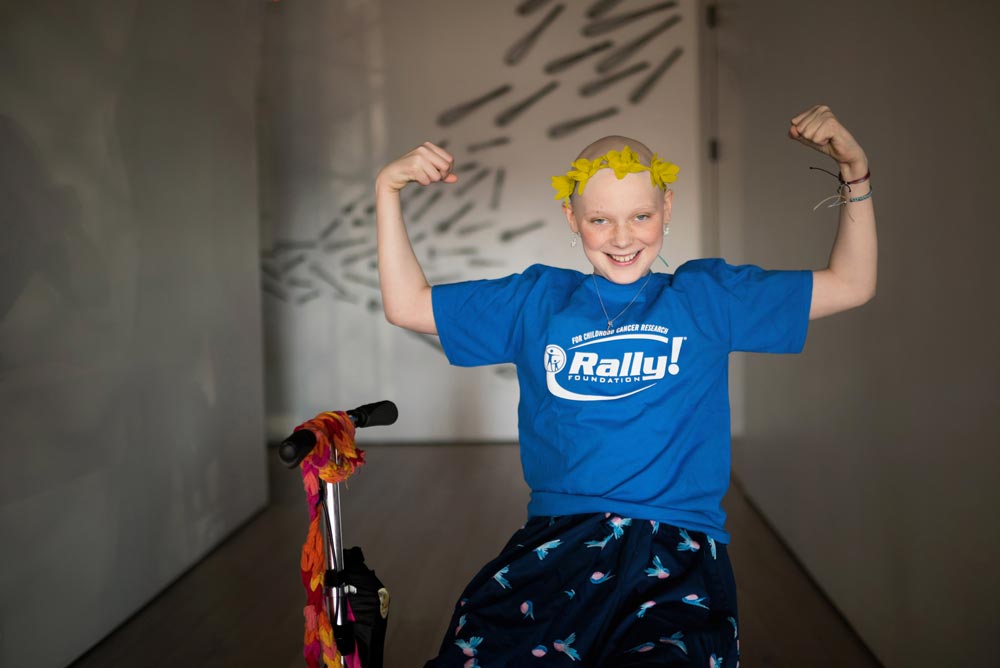
Rally Kid Keren was diagnosed with alveolar rhabdomyosarcoma at age 10.
Rhabdomyosarcoma (RMS) is a type of soft tissue cancer that most commonly affects children and adolescents. It’s often found in skeletal muscle tissue or organs, such as the head and neck area, the urinary system, the reproductive system or appendages like the arms and legs.
Rhabdomyosarcoma is part of a larger grouping of cancers called sarcomas which emerge in the body’s connective tissues, like muscles, fat, bones, blood vessels and joints. There are 50 different types of sarcomas.
There are only two main types of rhabdomyosarcoma: embryonal rhabdomyosarcoma (ERMS) and alveolar rhabdomyosarcoma (ARMS).
Embryonal rhabdomyosarcoma generally occurs in children under the age of 10. It is the most common type of rhabdomyosarcoma and is typically found in the head, neck, urinary tract or reproductive organs.
Alveolar rhabdomyosarcoma is more common in adolescents and young adults, and it is usually found in the torso, arms or legs.
Signs and Symptoms of Rhabdomyosarcoma
Rhabdomyosarcoma typically presents with a mass or swelling when found in the face or an extremity. If it arises deeper in the body, symptoms may be due to interference with normal body function, like difficulty urinating for a tumor in the bladder or double vision for a tumor in the base of the brain.
For Rally Kid Keren, it all started when she developed a growth on her foot. “It was the worst day of my life,” she said of her diagnosis, which took her away from friends, school and her favorite activities. Tough treatments and surgeries followed, ultimately leading to the loss of her leg.
Rally Kid Ruby battled embryonal rhabdomyosarcoma. She was also diagnosed at age 10 and contended with a brutal combination of chemotherapy and proton radiation that took 11 months, including 150 nights in the hospital.
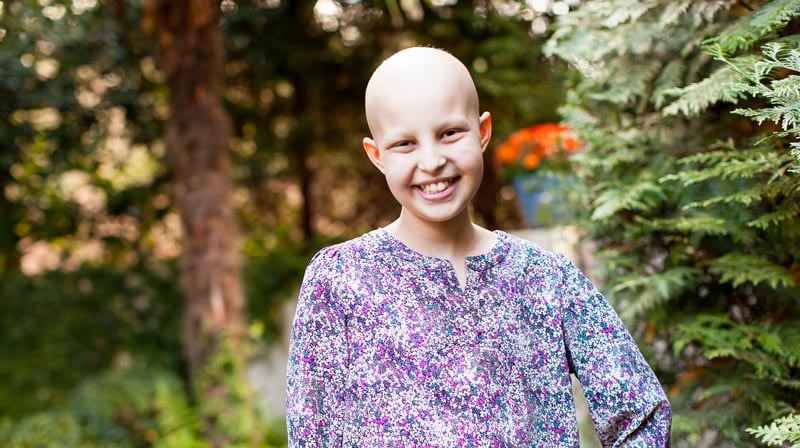
Ruby beat cancer, but she still suffers from treatment side effects to this day.
Rhabdomyosarcoma Prognosis and Treatment
The prognosis for rhabdomyosarcoma, like many cancers, depends on several factors. NCI’s PDQ cancer information summary about rhabdomyosarcoma describes four risk groups—based on the combination of Staging (1-4), Grouping (I-IV), age at diagnosis, subtype (ERMS or ARMS) and spread (metastasis)—that determine the treatment outcome and likelihood of relapse.
The five-year survival rate for low risk rhabdomyosarcoma, based on the above factors, is approximately 80-95%. The majority of rhabdomyosarcoma cases are intermediate risk with a 50-70% survival rate. However, once the cancer has metastasized (high risk; 10-15% of cases) the survival rate drops to 20-30%. Nearly all recurrences of rhabdomyosarcoma occur within three years of diagnosis.
Survival rates are better for children between the ages of one and nine than for younger or older patients. Embryonal rhabdomyosarcoma is associated with a higher survival rate than alveolar rhabdomyosarcoma. ARMS grows faster and often requires more intensive treatment.
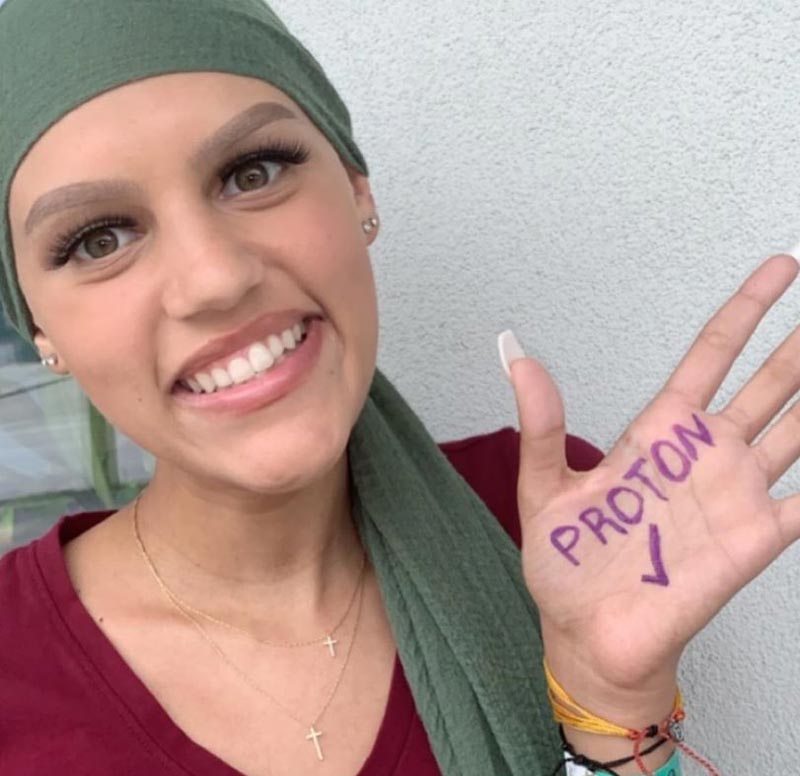
Rally Kid Arianna, aka Ari, should have been enjoying her senior year in high school. Instead, she was undergoing proton therapy and chemotherapy to battle alveolar rhabdomyosarcoma.
When it comes to treating rhabdomyosarcoma, a combination of chemotherapy, radiation and surgery is often required. This can be brutal, especially considering how young many patients are when they’re diagnosed.
“Rhabdomyosarcoma is typically diagnosed in children younger than 10 years old, so the impact of our treatment (especially radiation therapy and surgery) on the growing body can be profound and life-long,” said Rally-funded Researcher Dr. Doug Hawkins, Chair of the Children’s Oncology Group, Hematology/Oncology Division Chief at Seattle Children’s Hospital and Professor of Pediatrics at the University of Washington. “Although treatment has improved for children overall, our therapy too often fails, particularly for children with more advanced or metastatic tumors. Even when successful, therapy has harsh short-term and long-lasting side effects. The rarity of rhabdomyosarcoma has made it hard to learn about the underlying biology and to conduct clinical trials to improve outcomes.”
This, of course, is one of the reasons why Rally Foundation continually advocates for childhood cancer research. We need new and better treatments with fewer long-term side effects, so that young children don’t have to face the debilitating consequences of a treatment that’s needed to save their lives.
Recent Advancements in Rhabdomyosarcoma Research
Recently, there have been some advancements made in the treatment of rhabdomyosarcoma. Molecular studies have improved doctors’ abilities to characterize tumors, including identification of those at lower or higher risk for recurrence.
“This may allow us to reduce therapy for some children,” explained Dr. Hawkins. “However, we are still searching for better treatments for those at the highest risk for recurrence.”
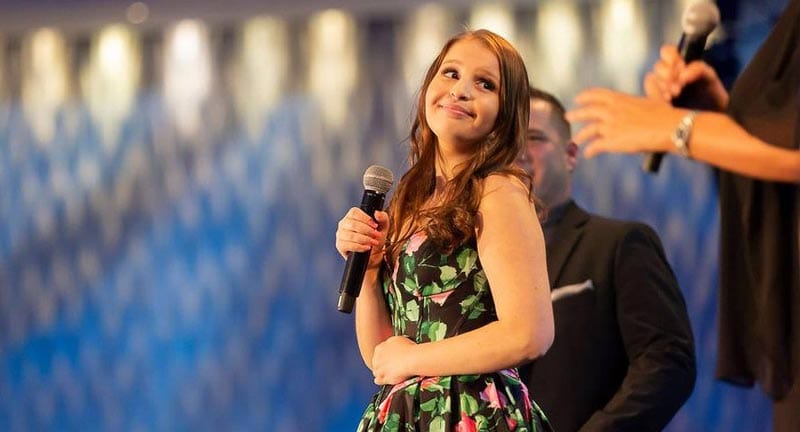
Ruby is now thriving and making a difference for other kids with cancer by raising funds and spreading awareness through her Dance ‘Til You Drop events.
The ability to share data across continents has also improved the understanding of this rare cancer and could ultimately lead to greater treatment standardization. For example, Rally-funded Researcher Sam Volchenboum MD, PhD, Associate Professor of Pediatrics, Dean of Master’s Education, Associate Chief Research Informatics Officer and Associate Director of the Institute for Translational Medicine at The University of Chicago Medicine created the Pediatric Cancer Data Commons (PCDC), a database that shares common language bringing together clinical, genomic and imaging data from institutions and researchers, specifically for rhabdomyosarcoma. This was made possible by seed funding from Rally Foundation, of which $75,000 was raised by Rally Kid Ruby.
Join the Fight
We still have a long way to go when it comes to finding better treatments for children who are battling rhabdomyosarcoma—like Keren, Ruby and Arianna.
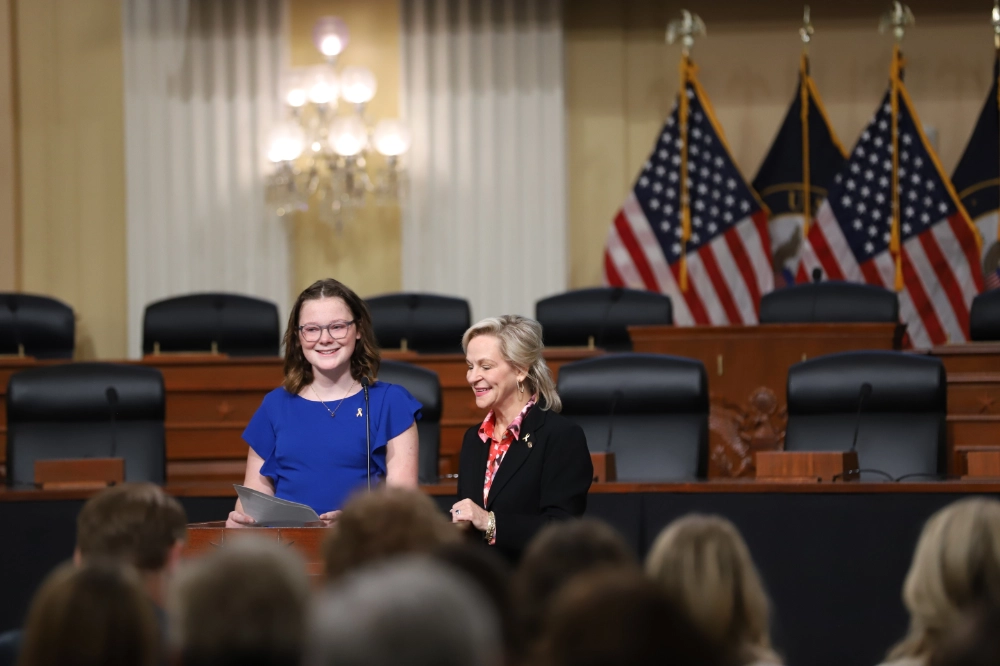
Keren’s journey hasn’t been easy — she’s now facing AML, a blood cancer, after previously battling bone and soft tissue cancer. But just like before, she’s meeting this challenge with courage and hope, surrounded by love and support. Through it all, Keren remains a powerful advocate for kids fighting cancer.
With your support, Rally will continue to fund the most innovative, cutting-edge rhabdomyosarcoma research in hopes of, one day, discovering a cure.
I am a Rhabdomyosarcoma survivor. I am now 55 years old. 1990, I was 23 years old and in the United States Marine Corps and recently returned from a deployment and started having symptoms. My symptoms progressed for months. After going to the U.S. Naval Dr.s for the pain for months I eventually was unable to stand and had to have my friends take me to the hospital where it was eventually found to be a tumor paralyzing my sciatic nerve. Dr. after no help was available to treat it asked to me if was I ok with her making a phone to an associate. I then was asked to be on a Highly Experimental Aggressive Protocol for Ewings which was later diagnosed with Rhabdomyosarcoma. @ the NIH Building 10 13 Floor Pediatrics, I humbly and excitedly said “I want to live, YES” Over a year and a quarter or so I finished my treatments. I do suffer from numerous side effects. I am alive today. I am married to a God-sentangel and have the most bestus wonderful son.